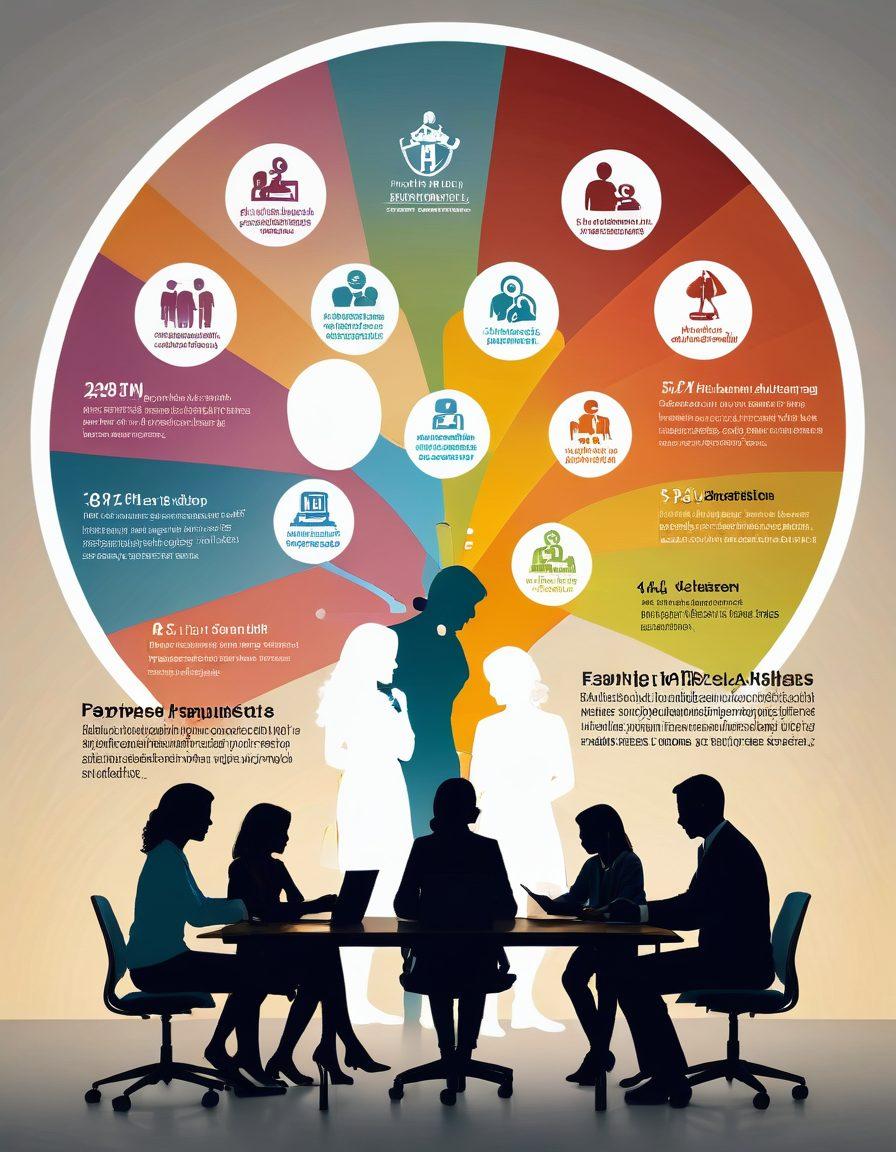Understanding Your Rights: Navigating the Family and Medical Leave Act for a Better Work-Life Balance
In today's fast-paced world, finding a balance between work and personal life can be challenging, especially for those experiencing family health issues or the joys of new parenthood. This is where the Family and Medical Leave Act, commonly referred to as FMLA, comes into play. It is the shining beacon of hope that empowers employees when they need to take a step back and focus on their loved ones or recover from medical circumstances. Have you ever thought about how workplace leave can safeguard your family and career? In this guide, we will delve into FMLA benefits, employee rights, and the job protections that enable you to prioritize what truly matters without fear of losing your job.
Understanding the intricacies of the Family and Medical Leave Act can feel overwhelming, but it is essential to know the basics. Signed into law in 1993, the FMLA affords eligible employees the right to take up to 12 weeks of unpaid leave for specific family and medical reasons. Whether it's welcoming a new child through birth or adoption, caring for a family member with a serious health condition, or even addressing your own medical needs, the act covers it all. Are you aware of your legal rights when it comes to taking leave? This knowledge is nothing short of your ticket to a well-deserved work-life balance.
One of the remarkable aspects of the FMLA is its provision for job protection. Employees can utilize their leave of absence without the fear of losing their position, thanks to the robust job protections embedded in the law. Imagine the peace of mind knowing that you can take unpaid leave when life throws challenges your way without jeopardizing your employment. Moreover, the Family and Medical Leave Act ensures that upon your return, you can resume your duties under the same terms as before. Doesn't that sound reassuring?
However, just knowing that FMLA exists isn't enough; you must also navigate the complex landscape of workplace regulations and HR policies to unlock its benefits. For example, not all employees are eligible for FMLA leave. For instance, you must have worked at your employer for at least 12 months, totaling 1,250 hours in the past year. Some organizations may offer even more generous leave policies, such as paid family leave, so it's worthwhile to examine your company's employment benefits. Have you conversed with your HR department about your entitlements?
While the Family and Medical Leave Act serves an essential role in employee rights, it is not the only option available for employees seeking work-life balance. Many organizations recognize the importance of mental and physical well-being and are beginning to offer additional types of workplace leave, which cover everything from paternity leave to extended medical leave. As workplace benefits evolve, it’s crucial for employees to stay informed and advocate for their rights. Remember, seeking knowledge is the first step toward empowerment, so don’t shy away from leveraging your legal rights and exploring ways to optimize your leave administration. Together, let's make informed choices that foster a healthier work-life balance!
Balancing Family and Career: Making the Most of Your Leave Entitlements
In today's fast-paced world, finding a sweet spot between family commitments and career ambitions can sometimes feel like juggling flaming swords. With the ever-increasing demands on our time, the importance of understanding our legal rights, specifically those under the Family and Medical Leave Act (FMLA), cannot be overstated. So, how do you navigate the intricacies of this legislation while ensuring that your family doesn't take a backseat to your career aspirations? Let’s dive deep into the ocean of family and workplace benefits, exploring how you can maximize your leave entitlements and safeguard your work-life balance.
Understanding the Family and Medical Leave Act (FMLA) isn’t just for HR professionals or corporate executives; it is essential knowledge for every employee. This valuable act provides eligible workers with the right to take unpaid, job-protected leave for specific family and medical reasons. Imagine having the space to care for a new child or to deal with a serious health condition, knowing your job is secure. As a major contributor to workplace regulations, FMLA protects not just your position but also your sanity during stressful times. So, what if you could turn a complicated legal framework into a tool that supports your life’s most important moments?
To maximize your leave entitlements, it’s crucial to understand the different types of leave available under the FMLA, such as parental leave, medical leave, and family health leave. Did you know that under this act, you can take up to 12 weeks of unpaid leave in a year without losing your health benefits? That’s right! With proper leave administration and communication with your employer, you can take the time you need without fear. Has your workplace left you guessing about their policies? Remember, knowledge is power, and knowing your employee rights is the first step toward balancing your family and career.
Picture this: you’re juggling a newborn and a demanding job, but with paid family leave, the burden feels just a little lighter. Imagine explaining to your supervisor that you’re planning to take advantage of your legal rights to secure time off. Suddenly, the atmosphere at work shifts; your boss is understanding, and the HR department is full of support. While every workplace is different, understanding your employment benefits under the FMLA can offer you the encouragement you need to prioritize your family. Are you considering a leave of absence? Make a proactive plan to discuss your entitlements with your HR team; you might be pleasantly surprised by their willingness to help your situation.
Ultimately, it all boils down to your legal rights as an employee. Being knowledgeable about workplace leave and FMLA regulations empowers you to make informed decisions for your family and career. Reach out to your HR department and clarify any uncertainties about leave administration and employee entitlements. Share personal stories in your working community that reflect the positive impact of utilizing family leave. This can not only inspire others but also build a solid support system in times of need. Remember, achieving a work-life balance isn’t a luxury; it’s part of a healthy, fulfilled life. What will be your next step toward reclaiming your time with loved ones?
Navigating Legal Rights: Ensuring a Healthy Work-Life Harmony with the Family and Medical Leave Act
In today’s fast-paced world, finding that elusive work-life balance can feel like trying to catch smoke with your bare hands. The pressures of work in tandem with family responsibilities can be overwhelming. In such a landscape, understanding your rights under the Family and Medical Leave Act (FMLA) becomes crucial. It’s not just about knowing your legal rights; it's about ensuring you have the tools and information needed to protect your well-being. Have you ever felt torn between work obligations and your family’s needs? You're not alone, and that’s where the Family and Medical Leave Act comes into play, offering job protection and peace of mind during tough times.
Imagine this: you’re a new parent, filled with joy yet drowning in the demands of sleepless nights and endless diaper changes. Knowing that you have the right to take parental leave without fear of losing your job can make all the difference. The Family and Medical Leave Act allows employees to take unpaid leave for various family and medical reasons, including the birth of a child or caring for a family member with a serious health condition. Armed with the knowledge of FMLA benefits, you can face these challenges head-on, taking the time to nurture your family's health while ensuring your job waits for your return, like an old friend patiently holding onto your chair at the dinner table.
Navigating through FMLA can feel like deciphering a complex puzzle, but it doesn’t have to be that way. The essence of FMLA is to provide employee entitlements that safeguard your rights in the workplace. Have you read through your HR policies or employment benefits? Knowing your company’s leave administration procedures can help you effectively communicate with your employer about your needs. Unraveling workplace regulations is not only empowering; it enables you to advocate for yourself and your loved ones, ensuring that your health and happiness are not compromised by job demands.
One of the major questions lingering in your mind might be: what if I need to take medical leave unexpectedly? Here’s where understanding your employee rights comes into play. FMLA offers a safety net of job protection while you recover from an illness or surgery. It’s about having the assurance that your position will be secured as you take the time necessary to heal. Remember, it is vital to educate yourself about the specific requirements needed for taking a leave of absence, as well as the type of documentation you may need to provide. After all, knowledge is power, especially when it comes to your health and well-being.
Ultimately, navigating legal rights with an informed perspective leads to a healthier work-life balance. Whether you are seeking paid family leave or planning to take medical leave for your own health, remember that your rights are there to support you. Think of it this way: by engaging with your employer and understanding your entitlements, you are championing not just your own rights, but also paving the way for better workplace benefits for all employees. Ask yourself, are you ready to transform your understanding of the Family and Medical Leave Act into actionable insights that allow you to live your best life without the stress of work overshadowing the moments that truly matter?


